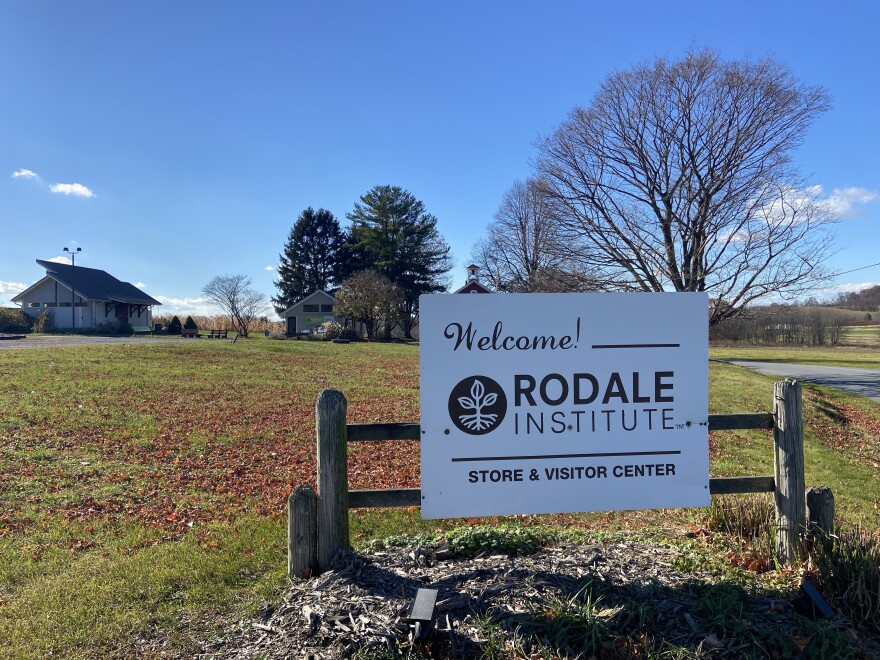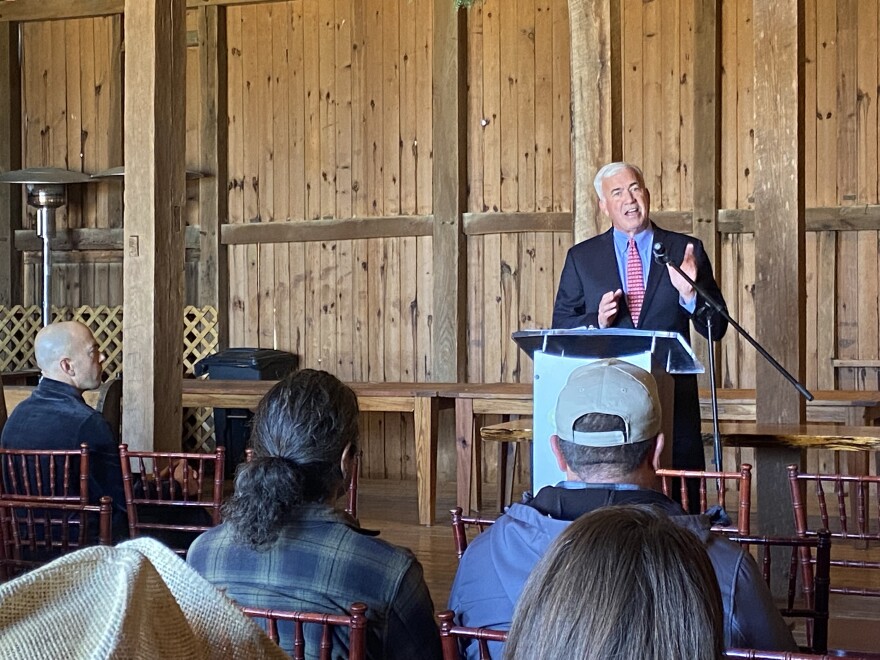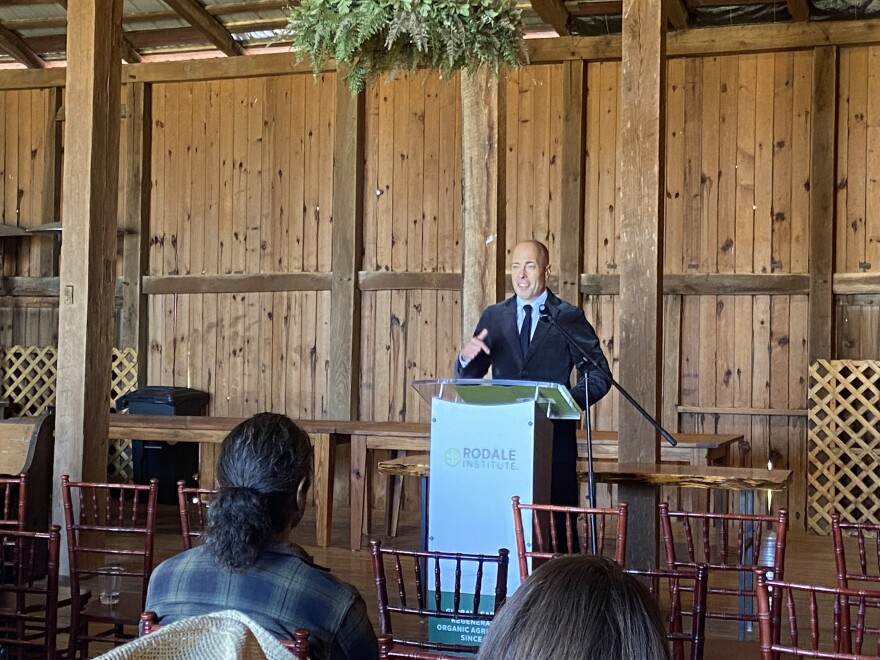MAXATAWNY TWP., Pa. — Regenerative agriculture has the power to heal, Jeff Tkach said Monday.
Not just the land, but people, too.
“Over the last seven years, I've had the pleasure of watching students come through this program, and each one of them, I've seen over and over again how when a person reconnects with the land, how it can actually transform and heal them,” said Tkach, CEO of Rodale Institute. “ … In each one of these people, there's one common denominator, and that is the land — the land did that.
“I really believe that each one of our students, these veterans that come here and train, a lot of them hit a lot of other dead ends, frankly, in their healing, as they came back from service. But there's something about the land that healed them.”
Tkach, along with other officials, on Veterans Day Monday celebrated $500,000 in state funding awarded to Rodale Institute outside Kutztown for its Veteran Farmer Training program. The program, less than a decade old and drawing trainees from across the U.S., aims to give veterans the tools they need to pivot into successful careers using sustainable, regenerative farming practices.
“I know that as a society, we have a lot of questions we're asking ourselves right now about how we're going to make a better world."Jeff Tkach, Rodale Institute CEO
“I know that as a society, we have a lot of questions we're asking ourselves right now about how we're going to make a better world,” Tkach said. “And I believe that it starts first and foremost with reconnecting the land.”
“Men and women who have served our country in any of the armed forces have the ability to come to @RodaleInstitute … and get a free education and ultimately get paid to train to become a regenerative organic farmer,” said Jeff Tkach, CEO.#VeteransDay2024 pic.twitter.com/Zh7Y6VmQnH
— Molly Bilinski, artisanal sentence crafter (@MollyBilinski) November 11, 2024
‘Found another mission’
Between 1% and 2% of the U.S. population serves in the military, said Justin Barclay, Rodale’s global education operations manager. About 2% of the population are farmers.
“There's a very healthy Venn diagram where that's the same group of people, both men and women, that are doing this job,” he said. “So, they found this mission when they left service, and found another mission to be able to support their local communities.”
Earlier this month, the most recent cohort graduated from the program. Over the nine growing seasons the program has been up and running, more than 75 veterans have completed it.
Each year, between seven and 10 veterans are accepted into the free program. Trainees also receive a weekly stipend independent of any benefits they receive from their service.

“This program is definitely not cheap, but it's definitely well worth it,” Barclay said. “It’d be much more expensive by not providing the services that we are to the local community for healthy food and being able to provide this service for veterans that need it.”
There are two tracts, including a full season, or 35 weeks from March through October; or a short season, from May through August, for those who need a more flexible schedule. There are presentations and lectures, including classes with Rodale staff and research scientists, as well as financial training.
Julia Boughton, a U.S. Air Force veteran who grew up in Montgomery County and completed Rodale’s Veteran Farmer Training, said the program was “incredible” and “the most hands-on training I've ever had,” during an interview with LehighValleyNews.com last year.
‘Sounds a lot like a farmer’
State Rep. Jamie Barton, whose district covers parts of Schuylkill and Berks counties, listed the core values all veterans illustrate.
“You know what they are,” said Barton, a Republican who recently won his second term. “Things like grit, determination, work ethic, duty, respect, service and an incredible amount of selflessness.
“Sounds a lot like a farmer, too, doesn't it?”

After service, veterans can struggle adjusting to civilian life, he said.
“It's not always easy to re-enter the normal day-to-day life that many of the rest of us really take for granted,” Barton said. “This program from Rodale Institute offers a solution to that problem by offering veterans a different way to serve their communities, to nourish their communities.”
The number of farms across the U.S. is declining, he said, and the nation is also in need of farmers.
In 2022, there were 1.9 million farms across the U.S., down 6.9% since 2017, according to the U.S. Department of Agriculture.
The average age of all U.S. farm producers in 2022 was 58.1 years, up 0.6 years from 2017, according to the USDA. The average age of farm producers with military service is 68.2.
“Our veterans don't choose to enlist because they're looking for an easy life,” he said. “Quite frankly, they enlist because our country needs them … And once they leave the military, once they're done, Rodale’s Veteran Farmer Training program offers a chance to fill another need.”


